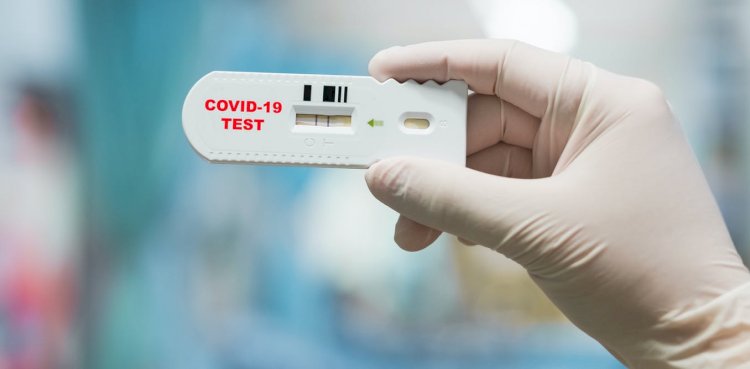Gene-editing technology-based coronavirus testing kit launched in Delhi
The indigenously developed testing kit for coronavirus based on the gene-editing technology CRISPR called Feluda was launched by Tata group in collaboration with the Apollo group of hospitals.

A fast and cheap coronavirus testing kit that can provide results in 40 minutes was launched in Delhi on 19th November. The indigenously developed testing kit for coronavirus based on the gene-editing technology CRISPR called Feluda was launched by Tata group in collaboration with the Apollo group of hospitals. The test is likely to be cheaper than the current gold standard RT-PCR and equally accurate, helping in scaling up COVID-19 testing.
The first batch of Feluda paper strip test, which has been approved by the Drugs Controller General of India (DCGI) for use in the country, will only be made available in Delhi, one of India’s worst-hit states. Tata Medical and Diagnostics Ltd (TataMD) had earlier announced that the paper-strip kit would be marketed as “TataMD’s CHECK". The price has not been released yet, but it could cost around 500 rupees which is around a fifth of what a PCR test costs in Delhi.
The indigenously developed Feluda paper strip test is based on CRISPR-Cas9 technology for diagnosis of SARS-CoV-2. The paper-strip uses cutting-edge CRISPR gene-editing technology to identify and target the genetic material of SARS-CoV-2, the deadly virus that causes Covid-19 in less than an hour. The test kit was named after a detective in a famous Indian novel series, Feluda which resembles a home pregnancy paper-strip test. It usually delivers results in just around 40 minutes. So, it’s quite a faster method of detection & usually result can be achieved early which would be helpful for other treatment. While no further RT-PCR based confirmation is required for the samples that are to be confirmed as positive or negative by the CRISPR SARS-CoV-2 test i.e. an advisory issued by the Indian Council of Medical Research (ICMR) earlier had stated.
The test has been developed by the Council of Scientific and Industrial Research's (CSIRs) Institute of Genomics and Integrative Biology (IGIB), Delhi. While the test is being validated by the National Centre for Biological Sciences and the Tata Institute of Fundamental Research.
Meanwhile the Union Health Minister Harsh Vardhan had said that based on tests in more than 2,000 patients during the trials at the Institute of Genomics and Integrative Biology (IGIB) and testing in private labs, the tests showed 96% sensitivity and 98% specificity. This compares favourably to ICMR's current acceptation criteria of RT-PCR kit of at least 95% sensitivity and around 99% specificity, Union Health Minister had added. Thus, it would be the big achievement for the growth of the economy & a remarkable achievement in the field of Biotechnology. It not only saves the time also save the money for attaining the faster & reliable results with more assuredly & reliable results.





























